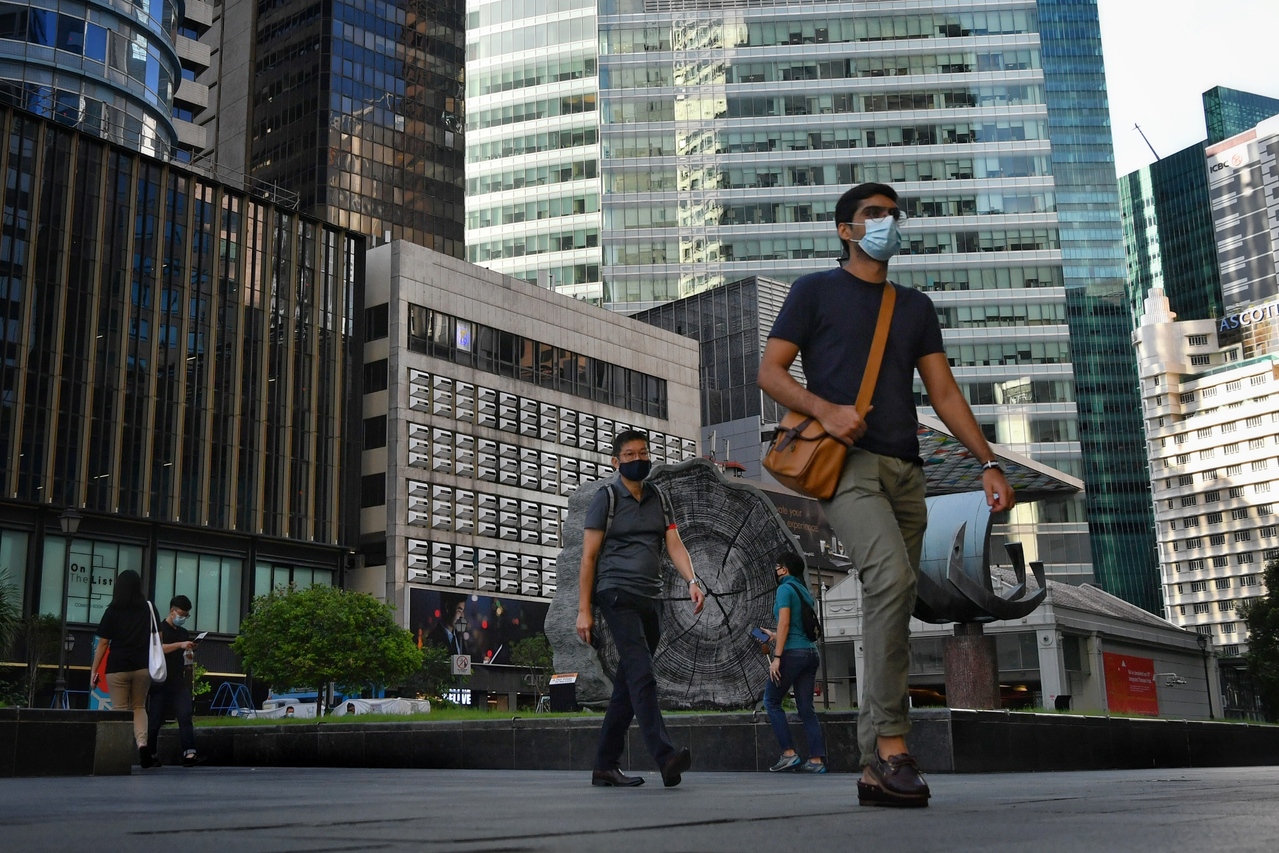Parliament: Satellite career centres may be set up in all 24 towns to help job seekers, says Josephine Teo
Sign up now: Get ST's newsletters delivered to your inbox

To help job seekers find the most suitable pathway for them, the Government aims to set up satellite career centres in all Housing Board towns.
ST PHOTO: CHONG JUN LIANG
Follow topic:
SINGAPORE - Singapore will do all it can to open up new pathways to jobs and opportunities for job seekers, Manpower Minister Josephine Teo said on Thursday (June 4).
There is a window of opportunity to get organised now, thanks to support schemes providing much needed cover for business and workers against a possible Covid-19 storm, she told Parliament.
To help job seekers find the most suitable pathway for them, the Government aims to set up satellite career centres in all Housing Board towns, she said, without providing further details.
There are now five career centres islandwide as well as partnerships with the National Trades Union Congress' Employment and Employability Institute (e2i), Social Service Offices, community development councils, and self-help groups.
Job seekers can also seek help online on the MyCareersFuture.sg portal.
"We will spare no effort to open up new pathways for job seekers and guide them appropriately; as big a push as we can muster," said Mrs Teo, who spoke during the debate on the Second Supplementary Supply Bill to fund the Fortitude Budget.
"But for matches to happen, I urge job seekers to keep an open mind - stay open to pathways that you would not have considered previously. Give the employers a chance and give yourself a chance."
Even before the Covid-19 pandemic hit, Singapore's labour market was already experiencing "persistent showers with pockets of sunshine", she said.
Now, the situation has become even more uneven and unpredictable. Unlike cyclical downturns, there is much less visibility about how things will play out.
The minister said the schemes introduced under the Budget and supplementary budgets this year are providing much needed cover to businesses and workers, saving jobs and livelihoods.
"If we did not have this cover, we would already be drenched in soaring unemployment, as can be seen in some countries," she said.
Still, Singapore must gear up for further job losses, although it is not yet clear exactly how severe they will be, she added.
Citing a Chinese idiom wei yu chou mou, which means to plan ahead before the storm hits, she said there will have to be a big push for pathways to help three groups of workers: retrenched and mid-career people from all sectors; fresh graduates from the Institute of Technical Education, polytechnics, universities and other educational institutions; and self-employed people who want to remain self-employed or move into regular employment.
These pathways will come through the nearly 100,000 opportunities - jobs, traineeships and skills training places - which the Government aims to generate in the next 12 months via the SGUnited Jobs and Skills package. The new National Jobs Council will oversee the design and implementation of this scheme.
The target is more than triple the average of 29,000 locals placed into jobs every year in the last three years by Workforce Singapore and its partners like e2i and the Monetary Authority of Singapore, said Mrs Teo, adding that each of these placements involves painstaking work.
She noted that though the top priority will be to promote jobs and ensure job seekers have access to them, traditional job placement methods may be difficult in this climate, as employers unsure of their business prospects will be hesitant about hiring.
There will likely be many more job seekers than vacancies.
"As a millennial might put it, it's an epic challenge to create new pathways for 100,000 people under such circumstances," she said.
Mrs Teo said that at the first National Jobs Council meeting on Wednesday, there was intense discussion about the potential for experienced mid-careerists to help businesses transform, particularly small and medium-sized enterprises, through traineeships for mid-career job seekers.
This will help hard-pressed SMEs build up their capabilities, while providing opportunities for workers, she said.
She said the Manpower Ministry has been working closely with NTUC and employer groups to help workers and employers, and will partner more trade associations and chambers to reach their respective sectors.
This can include self-employed persons associations such as those for sports coaches and media freelancers.
Mrs Teo cautioned that "we should not underestimate how rough the weather might become" as Singapore gears up for a storm.
At the same time, there are at least three reasons to be hopeful, she said.
First, Singapore has a vibrant continuing education and training (CET) ecosystem that the Government has invested heavily in for well over a decade, which provides quality training to working adults. The system will continue to be strengthened under the Next Bound of SkillsFuture.
Second, even though there are uncertainties ahead, industry transformation maps developed in recent years have carefully positioned the major economic sectors for future growth, and this means training and attachment pathways in each sector can be curated more effectively.
For example, in financial services, the new skills needed within the next three years have been identified for practically every job there is, said Mrs Teo.
Finally, Singapore's unique brand of tripartism allows the Government, employers and unions to "row as one, in unison towards the same destination", even in stormy waters, she said.
"Working together, we can clear roadblocks and widen existing pathways, and open up new pathways where none existed," she said.
"A big push for these pathways will inspire hope and confidence in our people, and keep us moving forward."

